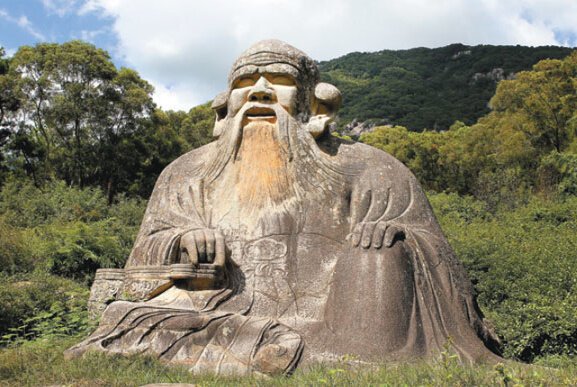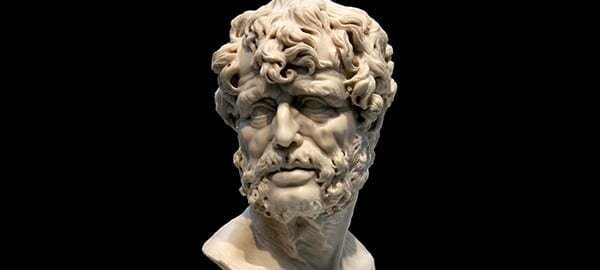Product Management Pioneers
Martin Eriksson traces the origin of product management to Neil McElroy of Procter & Gamble. We don’t think this goes back far enough.
In our continuing effort to educate the public that product management is not a role, it’s a set of principles, we present The Fortune’s Path List of Product Management Pioneers.
Learn more about the principles of product management here.
Early Man
Early product managers field testing their minimum viable weapon.
Iteration often comes before vision. The apes from 2001: A Space Odyssey show us how it’s done. After failing to secure an adjacent market from a rival firm, the apes went to the monolith (a metaphor for Google?) for inspiration. After some research and testing, the apes develop a minimum viable weapon (MVW). The apes test their MVW by killing a boar and then use it to smash the competition’s head in.
Legacy: We’re all product managers.
Essential skill: Curiosity
Primary virtue: Truthfulness. They’re truly awful.
Lao Tzu
Maybe Lao Tzu, maybe someone else. Lao Tzu lived 2,600 years ago, and this is the internet.
Founder of User Experience. The first lines of his classic “The Tao Te Ching” summarize a critical principle of product management: “The unique value proposition (UVP) that can be told is not the eternal UVP.”
Legacy: Usefulness comes from what is absent.
Essential skill: Emotional intelligence
Primary virtue: Moderation
Mayan Civilization
The great Mayan city of Cutnpaste.
Technologists with a divine king who demands blood sacrifices (insert your own joke here), Mayans invent a base-20 number system that represents numbers with dots and dashes, a calendar that measures time from a long past date of holy significance – “7,454 days after the signing of the Agile Manifesto” – cities with a coherent central core and an ever-expanding set of dead ends (think Microsoft Word), the “frenemy” alliance, and the unnecessarily complicated innovation.
Legacy: Technical debt and space aliens.
Essential skill: Negotiation
Primary virtue: Right ambition until they killed each other.
Plato
Plato, history’s first chief philosophy officer.
Organizes products around ideas: “What is the good? And how can we monetize it?” Invents the philosopher king – a ruler who possesses a love of wisdom, intelligence, reliability, and a willingness to live a simple life. After being unable to find any leaders who meet that description, invents the pivot.
Legacy: Impossible job requirements
Essential skill: Curiosity
Primary virtue: Truthfulness
Aristotle
Aristotle, originator of the tech bro beard.
Identifies the Essential Virtues of Product Management: courage, truthfulness, moderation, right ambition, and customer focus. Defines a bunch of other virtues, too, (friendliness, wittiness, et.al.) but who cares; they’re not product virtues. Tutors Alexander the Great.
Legacy: The Essential Virtues of Product Management. Most of western thought. Cool beards.
Essential Skill: Emotional Intelligence
Primary virtue: all of them
Alexander the Great
Really successful but awful leader Alexander the Great.
Innovates on methods of war to grow his product portfolio through hostile takeovers. Conquers Persia, North Africa, and kills several of his friends. Dies at 32.
Legacy: Syncretism, a.k.a, “the mash-up.” Leaving a giant mess behind.
Essential skill: Negotiation.
Primary virtue: Moderation. Just kidding; he was a sociopath.
Seneca
Glamour bust of Seneca. He was a lot uglier.
Develops Stoicism. Victim of second mover advantage where those who follow over simplify ideas into best selling books. Tutors Nero to ignore his passions. Nero embraces his passions and orders Seneca to kill himself.
Glamour bust of Seneca. He was a lot uglier.
Legacy: Patron Saint of product managers.
Essential skill: Responsibility. If your boss orders you to kill yourself and you do it, that’s taking responsibility to a whole other level.
Primary virtue: Courage. Like contradicting the CEO, tutoring a dictator requires serious stones.
Elizabeth I
Elizabeth I. Even a supreme leader needs the support of the people to succeed.
Master of product/market fit; ruled for 44 years when most regents didn’t make ten. Sometimes accused of doing everything by half measures, she keeps her generals in check and avoids disaster against stronger foes. Charters the East India Company; monopoly profits ensue.
Legacy: Creator of the product manager’s motto: “I see and keep silent – though inside I’m doing a facepalm.”
Essential skill: Patience
Primary virtues: Moderation. And being lucky.
“All the sacred rights of humanity are violated by insisting on blind obedience.” – Mary Wollstonecraft, product management savant.
Mary Wollstonecraft
Advocate for women to be educated and writer of great quotes for product folks:
“Simplicity and sincerity generally go hand in hand, as both proceed from a love of truth.”
“But what a weak barrier is truth when it stands in the way of an hypothesis!”
“The beginning is always today.”
Legacy: Proof that women make better product managers than men.
Essential skill: Curiosity
Primary virtue: Truthfulness. What else?
Ready to start managing yourself like a product?
Download our free workbook The 12 Steps to Managing Your Most Important Product - You and get started today.









